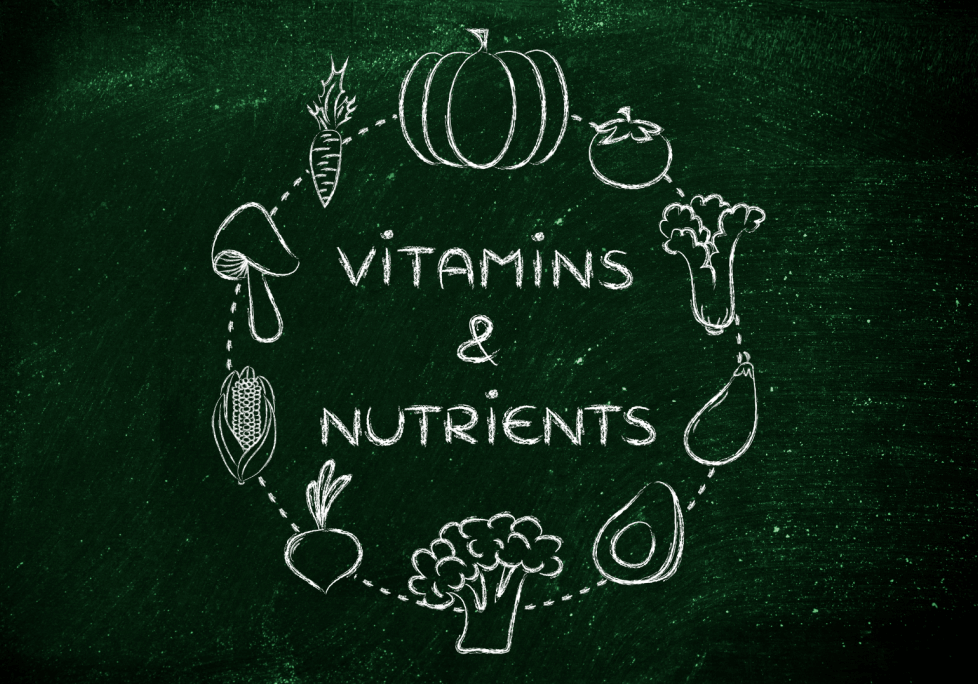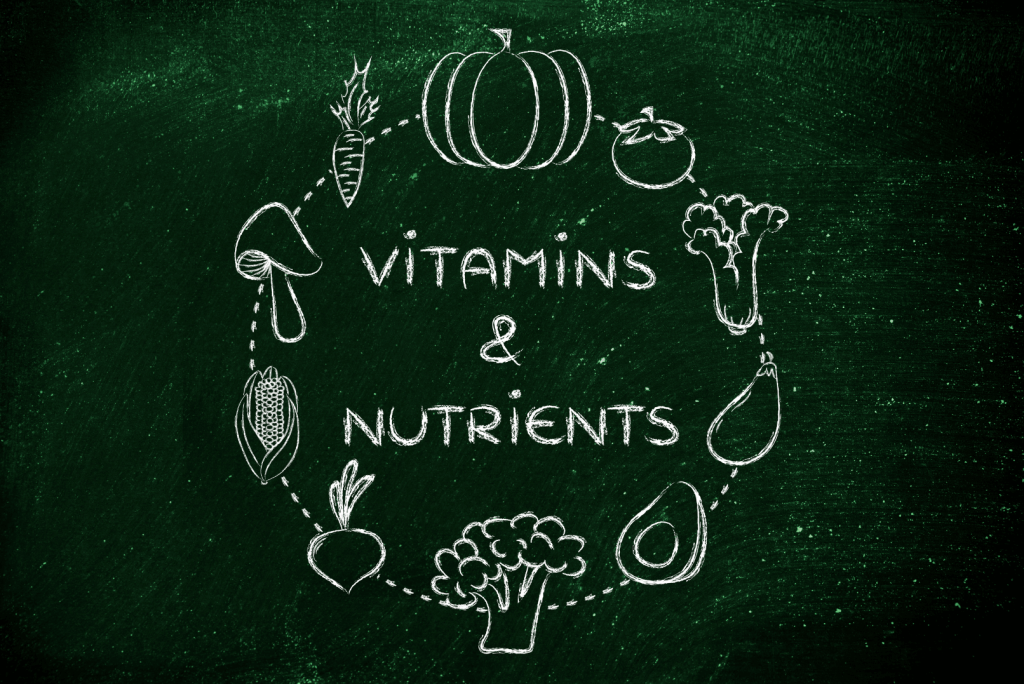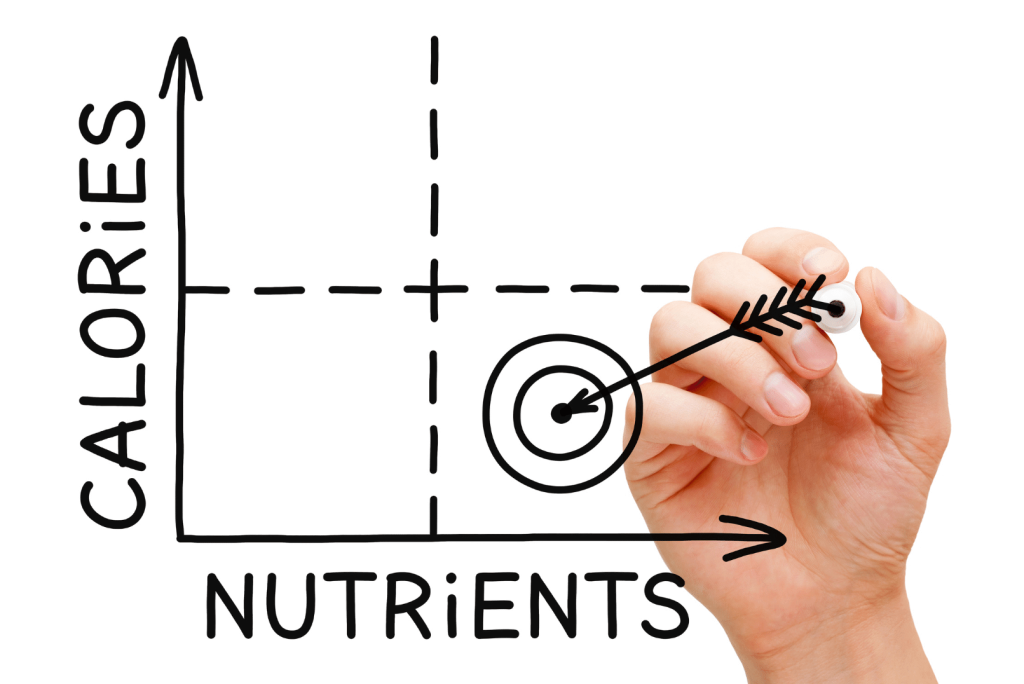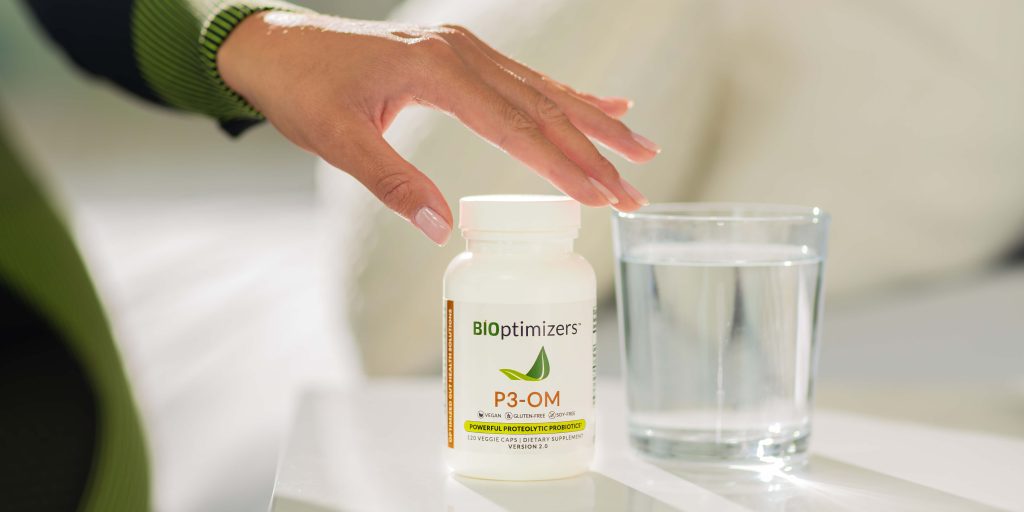Part 1: Essential Nutrients for Fertility
While numerous factors influence fertility, we will dig into nutrient deficiencies that can affect fertility. Many fertility cases involve multiple causes, but studies show that correcting these deficiencies may improve fertility.

Essential Nutrients for Fertility
In addition to the overall quality of your diet, there are several key nutrients when it comes to fertility. First, you need nutrients to build a baby. Then, these nutrients are also important for many processes in your body that influence fertility, such as hormonal balance, egg and sperm health, cardiovascular health, and inflammation regulation.

Folate and Elevated Homocysteine
Homocysteine is a non-essential amino acid naturally produced in your body when you break down protein. Normally, your body metabolizes homocysteine with the help of vitamins B6, B9 (folate), and B12. High homocysteine levels can increase inflammation and oxidative stress when it is not metabolized.
The build-up of homocysteine affects fertility by leading to the following:
- Increased risk of lack of ovulation
- Impaired embryo development
- Increased cell death causing improper placental development
- Birth defects
- Low sperm quality
- Instability of sperm DNA
Using data from two large genetic databases, a meta-analysis explored the relationship between homocysteine levels and female fertility. Researchers determined that high homocysteine levels negatively affect female fertility and pregnancy outcomes.
However, researchers in the above study highlighted that high homocysteine levels may not be as big of a concern for some ancestral groups. Elevated homocysteine seems to have a much worse effect on the fertility of women of Asian heritage compared to women of European descent.
High homocysteine levels may also be of more concern depending on the cause of infertility. A study of 388 infertile women undergoing IVF (in vitro fertilization) explored the relationship between the levels of homocysteine and pregnancy outcomes.
Of the 388 women, 129 had unexplained causes, and 329 had known causes of infertility. Those women with unknown causes of infertility had significantly higher homocysteine levels than those with known causes. There were, however, no differences in pregnancy outcomes.
Therefore, when fertility concerns get to the point of needing IVF intervention, homocysteine levels may no longer be a concern.
Let’s turn to the men. A controlled study of 77 infertile men examined DNA breakdown in sperm and homocysteine levels. Those with high homocysteine levels had increased inflammatory factors and lower sperm quality, as well as higher levels of DNA fragmentation.
Due to mixed evidence on whether addressing homocysteine can treat fertility or miscarriage, testing for homocysteine is not the standard of care for fertility treatments. Therefore, you may have to ask your doctor for it.
The Role of Folate
Folate (vitamin B12), the natural form of folic acid, is well-known for its role in helping to prevent neural tube defects such as spina bifida. It can help keep your homocysteine levels healthy; in fact, it is the biggest dietary factor affecting homocysteine.
Folate helps reduce the amount of homocysteine circulating in your blood by supporting the remethylation of homocysteine. This means it assists in converting homocysteine to methionine which is then used for various important functions in your body. If you don’t get enough folate in your diet, homocysteine conversion decreases, and you begin accumulating homocysteine in your blood.
A literature review examined the impact of folate on human reproduction. Researchers found that getting enough folate supports healthy:
- Ovarian function
- Implantation
- Embryo development – folate is a backbone for producing some DNA building blocks adenosine, guanine, and thymine
- Duration of pregnancy
Another study reviewing 20 years of data determined that taking more folate reduces the risk of spontaneous abortion and stillbirth. While it was previously recommended for women to take at least 400 micrograms of folate daily, it is now known that consuming at least 730 micrograms daily decreases the risk of pregnancy loss.
A study focused on developing ovarian reserves suggests an even higher amount of daily folate. Women attending a facility center taking 1,200 micrograms of folate had higher ovarian reserves than those taking 800 micrograms or less.
Turning back to men, a meta-analysis including seven studies focused on men with reduced fertility. Although additional research is needed, researchers determined that men who were supplemented with folate had a higher sperm count than a placebo group. These effects were even more pronounced when paired with zinc.
Omega-3
Omega-3s play a critical role in human cell formation and structure. And yes, that includes eggs and sperm. They are a vital source of cholesterol and energy for our cells. Omega-3s are the primary precursor for all steroid hormones, such as testosterone and estrogen. Because your body doesn’t naturally produce omega-3s, you must get them through your diet.
A cross-sectional study examined omega-3 levels in the US population. Researchers discovered that over 68% of adults do not consume enough omega-3s to meet their nutritional needs. This means the chances that you are getting enough to support optimal fertility are low.
As a woman, getting enough omega-3s may make you more likely to conceive. A recent (2022) study of 900 women trying to conceive explored the relationship between omega-3 supplementation and the likelihood of conception. Women taking omega-3 supplements on at least 20% of their menstrual cycle days were 1.5 times more likely to conceive than those who did not.
While the above results are promising, this was not a controlled study, and further research is needed to fully understand the relationship between omega-3s and conception.
Omega-3 deficiency could potentially contribute to the challenges faced by women with polycystic ovary syndrome (PCOS) when it comes to conceiving. A comprehensive meta-analysis investigated the efficacy of omega-3s as a treatment for PCOS. It revealed that women who consumed omega-3s exhibited notable improvements in insulin resistance and cholesterol levels compared to a placebo group.
A literature review focusing on the role of omega-3s in women undergoing IVF included data from 5,412 women. The findings indicated that women supplementing with omega-3s demonstrated enhanced oocyte and embryo quality, potentially leading to a higher likelihood of successful pregnancy.
More conclusive research is available for men. A placebo-controlled study included 180 semen samples from sixty infertile patients. Researchers wanted to examine the effects of docosahexaenoic acid (DHA), a type of omega-3 fat, on sperm function.
Researchers examined the sperm before and after DHA supplementation of 0.5, one, or two grams of DHA for either one or three months. Sperm motility, or movement, improved after just one month for those taking one or two grams of DHA and after three months for those taking 0.5 grams.
Omega-3s provide additional benefits by promoting a healthy inflammation response for both men and women. Excess inflammation can lead to:
- Irregular menstrual cycles
- Implantation failure
- Poor sperm quality
A literature review explored the role of inflammation in fertility. The findings established that mitigating inflammation could potentially enhance fertility outcomes, thereby reducing the necessity for extensive fertility interventions.

Iron
When it comes to iron levels and fertility, it’s a delicate balance. Your body doesn’t have a mechanism to eliminate excess iron, but it has many ways to limit iron absorption.
- In women, too little iron can lower your chances of conceiving, while too much iron can cause trouble with ovulation.
- In men, iron deficiency can lead to a decreased production of sperm, while excess iron can cause infertility and sexual dysfunction.
When you consume iron through your diet, your small intestines absorb the iron, and your liver stores it. From there, it’s transported to various tissues, including your ovaries, where it’s vital for processes like the breakdown of glucose into ATP or energy.
Cell development and steroid production are rapid during follicle development and require ATP. If you’re iron deficient, you won’t be able to produce enough ATP to support the follicles and will be more likely to experience infertility.
While there aren’t many current studies in humans, specifically surrounding iron and fertility, some in mice can be roughly applied to humans. Like us, mice are mammals that go through similar bodily processes.
In a three-week study, researchers examined the impact of iron on follicle development in mice. They divided the subjects into two groups and fed them either a normal or low-iron diet. The mice on the low-iron diet exhibited reduced iron concentrations in their livers and ovaries. Moreover, they displayed compromised follicle development and a notable decline in fertility.
As a woman, while iron overload is rare, if you have endometriosis, you’ll want to ensure your iron levels aren’t too high. A study aimed at identifying factors causing infertility due to endometriosis examined the follicular fluid of 1,712 women undergoing IVF.
The researchers found that the excess iron triggered a process called ferroptosis in granulosa cells (cells that surround the egg), leading to the death and dysfunction of the eggs. Additionally, the iron overload led to the eggs not fully maturing, further contributing to infertility. Overall, this study suggests that iron overload in the follicular fluid may contribute to endometriosis-related infertility.
A literature review dug into how iron affects men’s reproductive health. Researchers highlighted some important facts:
- In the United States, the average male consumes 10-15 percent more iron than he loses throughout the day.
- Excess iron can result in low testosterone levels, thereby leading to decreased production of sperm.
- As body iron stores increase, so do iron levels in the pituitary gland. High pituitary iron levels also result in low testosterone levels and luteinizing hormone (LH). LH is responsible for telling your testes to make testosterone.
An iron deficiency can cause just as much trouble as excessive iron. An animal study using male mice explored the effects of iron deficiency on male fertility. Researchers determined that iron deficiency led to:
- Reduced sperm production and sperm concentration
- Destruction of the testicular structure
- Damage to germ cells (reproductive cells in the testes)
Researchers proposed that iron deficiency can cause issues related to sperm production in multiple ways. Firstly, it affects the expression of genes responsible for sperm production. Secondly, it leads to abnormal hormone synthesis and disturbs the gut microbiota, which further impairs the production of sperm.
While women are more likely to be iron deficient, men are more likely to have iron overload in reproductive ages. Here are some statistics:
Women
Iron deficient: around 10% in non-pregnant women and 25% in pregnant women
Iron overload: 0.4 to 3%
Men
Iron deficiency in men: 2%
Iron overload in men: 0.8 to 9%
Zinc
Zinc is an essential element for both female and male fertility.
A literature review explored zinc’s critical role in female fertility. For women, it’s involved in several vital processes that regulate the growth of female germ cells, fertility, and pregnancy.
When a follicle develops, the oocyte (the female germ cell) needs sufficient zinc to maintain a “pause” until it’s ready to mature. Inadequate zinc can hinder proper oocyte development, making forming a healthy, fertilizable egg difficult.
After sperm and egg unite, a quick release of zinc occurs, which triggers the egg to activate and prevents other sperm from fertilizing the same egg. This zinc release also helps the fertilized egg and the resulting embryo’s growth and development.
However,t the importance of zinc continues beyond there. It’s also crucial for a healthy pregnancy. Zinc is necessary for proper fetal growth and development, including the growth of limbs and the neural tube that forms the early brain and spine. Zinc deficiency during pregnancy can negatively affect these critical processes, leading to poor pregnancy outcomes.
Another literature review explored zinc’s physiological and pathogenic roles in men’s health.
It showed that zinc possesses many unique properties in men. Infertile men tend to have more reactive oxidative species in their seminal fluid, leading to sperm damage and poor sperm movement and fertilization. Zinc, however, has antioxidant qualities that help mitigate oxidative damage.
The review highlighted many other critical roles for zinc in men’s fertility, including:
- Fighting against the toxic effects of heavy metals and inflammatory agents like cigarettes
- Balancing testosterone
- Functioning as an antibacterial agent in men’s prostate and testes
- Playing a role in maintaining the lining of the reproductive organs.
With these critical roles, zinc deficiency can wreak havoc on men’s testosterone levels and sperm.

Magnesium
Did you know that magnesium, the fourth most abundant essential mineral in the human body, has a profound impact on almost every cell in your body? This includes reproductive cells, making it one of the key players in fertility for both men and women.
Research highlights some of the roles of magnesium:
Metabolic Health
Low magnesium levels are associated with the underproduction of thyroid hormones (hypothyroidism). Thyroid hormones are essential for the metabolism and development of nearly all tissues, including the uterine lining, egg development, sperm production, and fetal development Left untreated, hypothyroidism can cause high prolactin levels leading to irregular periods and increased miscarriage risk.
Hormone Balance
Magnesium plays a crucial role in glucose metabolism. A deficiency can influence blood sugar control, impacting your ovarian health. Too much insulin can cause your ovaries to increase testosterone production. When testosterone levels are too high, you can experience delayed ovulation and irregular cycles.
Stress Regulation
The stress of infertility is hard enough, but piling on a magnesium deficiency makes it even harder. Magnesium plays a critical role in your body’s stress response and stress recovery, and low magnesium levels are associated with higher cortisol levels.
A cross-sectional study of 342 women explored the connection between cortisol and infertility. Those with higher cortisol levels experience more infertility than women with lower cortisol levels.
When it comes to magnesium deficiency in men, let’s turn to a study of 78 infertile men exploring the role of magnesium in infertility. Researchers measured subjects’ magnesium levels and examined their seminal fluid. All subjects with low or no sperm count were magnesium deficient.
Something that’s true for both men and women is that the more energy you have available to your cells, the better they will perform. Magnesium plays a role in converting the food you eat into the energy your cells use, ATP. You also need ATP for numerous reproductive processes. Magnesium deficiency leading to lower ATP levels can cause:
- Poor egg quality
- Decreased sperm movement
- Lower sperm production
You miss out on optimal health when you don’t support your body by giving it access to the energy it needs.
Now that you’ve learned about essential nutrients, in the next article, you’ll learn about other nutrition-related factors that can influence fertility.
- Skoracka K, Ratajczak AE, Rychter AM, Dobrowolska A, Krela-Kaźmierczak I. Female fertility and the nutritional approach: The most essential aspects. Adv Nutr. 2021;12(6):2372-2386. doi:10.1093/advances/nmab068
- Kjaergaard AD, Wu Y, Ming WK, Wang Z, Kjaergaard MN, Ellervik C. Homocysteine and female fertility, pregnancy loss and offspring birthweight: a two-sample Mendelian randomization study. Eur J Clin Nutr. 2022;76(1):40-47. doi:10.1038/s41430-021-00898-2
- Ocal P, Ersoylu B, Cepni I, et al. The association between homocysteine in the follicular fluid with embryo quality and pregnancy rate in assisted reproductive techniques. J Assist Reprod Genet. 2012;29(4):299-304. doi:10.1007/s10815-012-9709-y
- Yu Y, Jia C, Shi Q, Zhu Y, Liu Y. Hyperhomocysteinemia in men with a reproductive history of fetal neural tube defects: Three case reports and literature review. Medicine (Baltimore). 2019;98(2):e13998. doi:10.1097/md.0000000000013998
- Liu L, Lin Z, Lin P, Jiang Z. Association between serum homocysteine level and unexplained infertility in in vitro fertilization/intracytoplasmic sperm injection (IVF/ICSI): A retrospective, hospital-based, case-control study. J Clin Lab Anal. 2020;34(5):e23167. doi:10.1002/jcla.23167
- Liu KS, Pan F, Chen YJ, Mao XD. The influence of sperm DNA damage and semen homocysteine on male infertility. Reprod Dev Med. 2017;1(4):228-232. doi:10.4103/2096-2924.224910
- Kaye AD, Jeha GM, Pham AD, et al. Folic acid supplementation in patients with elevated homocysteine levels. Adv Ther. 2020;37(10):4149-4164. doi:10.1007/s12325-020-01474-z
- Thaler CJ. Folate metabolism and human reproduction. Geburtshilfe Frauenheilkd. 2014;74(9):845-851. doi:10.1055/s-0034-1383058
- Chavarro JE, Rich-Edwards JW, Gaskins AJ, et al. Contributions of the Nurses’ health studies to reproductive health research. Am J Public Health. 2016;106(9):1669-1676. doi:10.2105/AJPH.2016.303350
- Kadir M, Hood RB, Mínguez-Alarcón L, et al. Folate intake and ovarian reserve among women attending a fertility center. Fertil Steril. 2022;117(1):171-180. doi:10.1016/j.fertnstert.2021.09.037
- Irani M, Amirian M, Sadeghi R, Lez JL, Latifnejad Roudsari R. The effect of folate and folate plus zinc supplementation on endocrine parameters and sperm characteristics in sub-fertile men: A systematic review and meta-analysis. Urol J. 2017;14(5):4069-4078. Accessed May 19, 2023. https://pubmed.ncbi.nlm.nih.gov/28853101/
- Stanhiser J, Jukic AMZ, McConnaughey DR, Steiner AZ. Omega-3 fatty acid supplementation and fecundability. Hum Reprod. 2022;37(5):1037-1046. doi:10.1093/humrep/deac027
- Murphy RA, Devarshi PP, Ekimura S, Marshall K, Hazels Mitmesser S. Long-chain omega-3 fatty acid serum concentrations across life stages in the USA: an analysis of NHANES 2011-2012. BMJ Open. 2021;11(5):e043301. doi:10.1136/bmjopen-2020-043301
- Yang K, Zeng L, Bao T, Ge J. Effectiveness of Omega-3 fatty acid for polycystic ovary syndrome: a systematic review and meta-analysis. Reprod Biol Endocrinol. 2018;16(1). doi:10.1186/s12958-018-0346-x
- Abodi M, De Cosmi V, Parazzini F, Agostoni C. Omega-3 fatty acids dietary intake for oocyte quality in women undergoing assisted reproductive techniques: A systematic review. Eur J Obstet Gynecol Reprod Biol. 2022;275:97-105. doi:10.1016/j.ejogrb.2022.06.019
- González-Ravina C, Aguirre-Lipperheide M, Pinto F, et al. Effect of dietary supplementation with a highly pure and concentrated docosahexaenoic acid (DHA) supplement on human sperm function. Reprod Biol. 2018;18(3). doi:10.1016/j.repbio.2018.06.002
- Alesi S, Villani A, Mantzioris E, et al. Anti-inflammatory diets in fertility: An evidence review. Nutrients. 2022;14(19). doi:10.3390/nu14193914
- Azenabor A, Ekun AO, Akinloye O. Impact of inflammation on male reproductive tract. J Reprod Infertil. 2015;16(3):123-129.
- Gabrielsen JS, Lamb DJ, Lipshultz LI. Iron and a man’s reproductive health: The good, the bad, and the ugly. Curr Urol Rep. 2018;19(8):60. doi:10.1007/s11934-018-0808-x
- Akhter MS, Hamali HA, Iqbal J, et al. Iron deficiency anemia as a factor in male infertility: Awareness in health college students in the Jazan region of Saudi Arabia. Int J Environ Res Public Health. 2021;18(24):12866. doi:10.3390/ijerph182412866
- Gabrielsen JS, Lamb DJ, Lipshultz LI. Iron and a man’s reproductive health: The good, the bad, and the ugly. Curr Urol Rep. 2018;19(8):60. doi:10.1007/s11934-018-0808-x
- Tonai S, Kawabata A, Nakanishi T, et al. Iron deficiency induces female infertile in order to failure of follicular development in mice. J Reprod Dev. 2020;66(5):475-483. doi:10.1262/jrd.2020-074
- Ni Z, Li Y, Song D, et al. Iron-overloaded follicular fluid increases the risk of endometriosis-related infertility by triggering granulosa cell ferroptosis and oocyte dysmaturity. Cell Death Dis. 2022;13(7):579. doi:10.1038/s41419-022-05037-8
- Zhang FL, Yuan S, Dong PY, et al. Multi-omics analysis reveals that iron deficiency impairs spermatogenesis by gut-hormone synthesis axis. Ecotoxicol Environ Saf. 2022;248(114344):114344. doi:10.1016/j.ecoenv.2022.114344
- Miller EM. Iron status and reproduction in US women: National Health and Nutrition Examination Survey, 1999-2006. PLoS One. 2014;9(11):e112216. doi:10.1371/journal.pone.0112216
- Milman N, Taylor CL, Merkel J, Brannon PM. Iron status in pregnant women and women of reproductive age in Europe. Am J Clin Nutr. 2017;106(Suppl 6):1655S-1662S. doi:10.3945/ajcn.117.156000
- Killip S, Bennett JM, Chambers MD. Iron Deficiency Anemia. afp. 2007;75(5):671-678. Accessed May 19, 2023. https://www.aafp.org/pubs/afp/issues/2007/0301/p671.html
- McDowell LA, Kudaravalli P, Sticco KL. Iron Overload. StatPearls Publishing; 2022.
- Garner TB, Hester JM, Carothers A, Diaz FJ. Role of zinc in female reproduction. Biol Reprod. 2021;104(5):976-994. doi:10.1093/biolre/ioab023
- Fallah A, Mohammad-Hasani A, Colagar AH. Zinc is an essential element for male fertility: A review of Zn roles in men’s health, germination, sperm quality, and fertilization. J Reprod Infertil. 2018;19(2):69-81.
- Wang K, Wei H, Zhang W, et al. Severely low serum magnesium is associated with increased risks of positive anti-thyroglobulin antibody and hypothyroidism: A cross-sectional study. Sci Rep. 2018;8(1). doi:10.1038/s41598-018-28362-5
- Agarwal A. Thyroid spermatogenesis and male infertility. Front Biosci (Elite Ed). 2011;E3(3):843-855. doi:10.2741/e292
- Dittrich R, Beckmann MW, Oppelt PG, et al. Thyroid hormone receptors and reproduction. J Reprod Immunol. 2011;90(1):58-66. doi:10.1016/j.jri.2011.02.009
- Koyyada A, Orsu P. Role of hypothyroidism and associated pathways in pregnancy and infertility: Clinical insights. Tzu Chi Med J. 2020;32(4):312-317. doi:10.4103/tcmj.tcmj_255_19
- Lutz SZ, Wagner R, Fritsche L, et al. Sex-specific associations of testosterone with metabolic traits. Front Endocrinol (Lausanne). 2019;10:90. doi:10.3389/fendo.2019.00090
- Lorenz TK, Heiman JR, Demas GE. Testosterone and immune-reproductive tradeoffs in healthy women. Horm Behav. 2017;88:122-130. doi:10.1016/j.yhbeh.2016.11.009
- Alam F, Khan TA, Ali R, Tariq F, Rehman R. SIRTI and cortisol in unexplained infertile females; a cross sectional study, in Karachi Pakistan. Taiwan J Obstet Gynecol. 2020;59(2):189-194. doi:10.1016/j.tjog.2020.01.004
- Abdul-Rasheed OF. Association between seminal plasma copper and magnesium levels with oxidative stress in iraqi infertile men. Oman Med J. 2010;25(3):168-172. doi:10.5001/omj.2010.51
- Viski S, Szöllosi J, Kiss AS, Csikkel-Szolnoki A. Effects of magnesium on spermiogenesis. In: Magnesium: Current Status and New Developments. Springer Netherlands; 1997:335-339.





